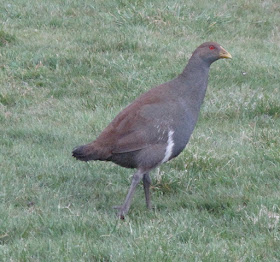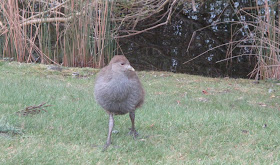It's been a number of months since I finished my first ever read of Robert Louis Stevenson's classic adventure story Kidnapped. My memory of the specifics is perhaps fading, but I have some very strong notions of the book that remain with me.
Firstly, I found this a rather hard book to get through. I was surprised to read in his Dedication that RLS intended this as a book for boys to read at bed time.
This is no furniture for the scholar's library, but a book for the winter evening school-room when the tasks are over and the hour for bed draws near...
I'm not sure that that many boys could get through it any more. Some classics still seem modern and vibrant despite the passage of time, and differences of language. I found this quite hard going as an adult. It must be said that I don't have a vast knowledge of the politics of Scotland in 1751. I tried to learn some as I went along with my reading, but well, didn't get all that far. Perhaps child readers would just let that part of the story wash over, but politics is rather integral to the action. A lot is made of the warring between the Highlanders and the Lowlanders, about the Whigs and Jacobites. Still, it is amazing to learn that in order to suppress the Highland clans it was "a sin to wear a tartan plaid, and a man may be cast into a gaol if he has but a kilt about his legs." A footnote informs us that the "relatively mild" Disarming Act of 1715 outlawed the possession of Highland dress or bagpipes upon pain of transportation.
The story at it's heart is relatively simple. David Balfour, a poor young lad of 16, has been recently orphaned. He sets out from his village to find his only known relative, who turns out to be the miserly, and awful Ebenezer, who sells David into slavery and tricks him onto a ship heading for America. The ship famously sinks on the remote west coast of Scotland. David miraculously survives the shipwreck and heads back towards civilization.
I hold somewhat romantic notions of Scotland as my ancestral homeland. The Scotland RLS portrayed here is dank, drab, murderous and very cold, where the existence of a few hearty individuals is tenuously maintained only by their intake of porridge and drink in various forms- gills of brandy, wine and spirits, strong ale.
Ye may keep a man from fighting but never from his bottle
Naturally it was not our modern day luxurious warm cooked porridge drizzled with maple syrup, and maybe some bananas or caramelised macadamias that they were eating. David, and his companion, the rebel Alan Breck, subsist on drammach as they journey through the isolated wilds of Western Scotland- an uncooked mixture of oatmeal and cold water. This sounds completely unappealing, and I'm sure it's no coincidence that Gaelic has a word drammag meaning foul mixture.
Somewhat surprisingly a google search did not turn up an image of what I could take to be drammach. So I headed to the kitchen to make some myself. Normally for making porridge with heat I just use rolled oats. Clearly Scottish oatmeal looks
more like this.
Not knowing how to make drammach, and expecting not to like it, I put a little bit of oatmeal in a bowl, with a small amount of water. After a minute or two it looked like this
|
and tasted like bland, awful, texturally bad soap |
|
it did get slightly better after about 10 minutes |
|
a final taste after 20 minutes was all I could stand |
I have no idea how people could fight wars, farm their fields and live their lives fueled only on this stuff.
Och aye, you've gotta love the Scots, and their love for all things porridge. They hold a World Porridge Championship each year, called the
Golden Spurtle. A spurtle is the implement you need for making porridge, and here I've been making my porridge all along without a spurtle! Wonder if a spurtle would have helped my drammach? I suspect not.
Another intriguing food reference is about buying butter in France.
'Ye see, David, he that was all his life so great a man, and come of the blood and bearing the name of kings, is now brought down to live in a French town like a poor and private person. He that had four hundred swords at his whistle, I have seen, with these eyes of mine, buying butter in the market-place, and taking it home in a kale-leaf. This is not only a pain but a disgrace to us of his family and clan.'
It's not clear to me whether the shame is that he is buying butter in the market, or taking it home wrapped in kale. The passage of time has made such distinctions impossible I think. I don't see much shame in either. I would certainly love to be buying butter in a French market place, and wouldn't care if I had to cart it away in kale or not.








































